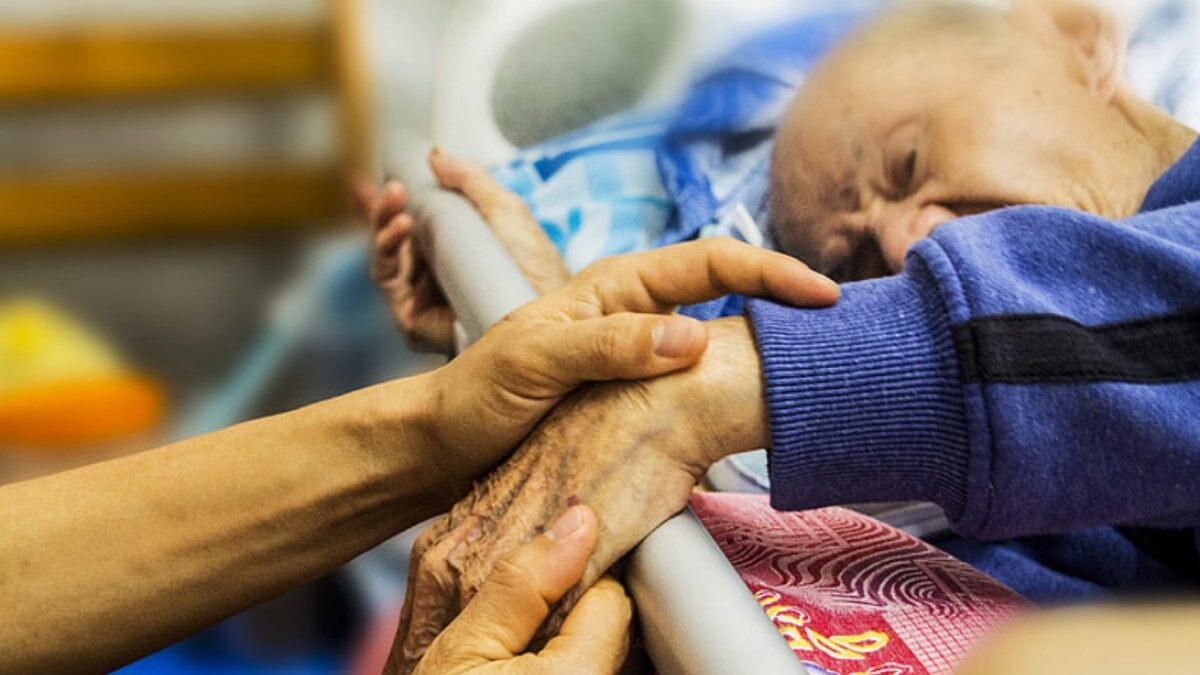
The case of 11-month-old Charlie Gard, where a British hospital delayed his parents from pursuing an experimental treatment until it was too late, has fueled public debate on how far parents’ rights should extend regarding their children’s medical care. But the outpouring of support for Gard also speaks to a larger societal question.
Coming as no surprise to those who follow ongoing policy battles, it has been the pro-life movement raising a global outcry to defend Charlie Gard and his parents. Popular media struggles to understand this movement, expressed in hundreds of different ways but coalescing around the conviction that violently taking lives in the womb is immoral and unethical, and that millions dying every year from this practice is a great injustice.
Anyone who’s ever voiced pro-life views has heard the taunt: “You’re not pro-life, you’re pro-birth!” But how true is this claim? A fair examination of the movement’s leaders and driving issues reveals diverse people united to defend the dignity of life at every stage.
1. Charlie’s Fight for Life Against Malign Forces
Pro-life advocates realized from the start that they might mourn the outcome of Charlie’s fight for life, expected to end this week. Medical doctors, whose expertise all had praised, have had a range of perspectives on the case. The larger question at stake: in spite of a negative prognosis, do a baby’s parents have the right to seek care for their child and hold on to hope?
The drama ended Monday with a stark statement from his parents. “We are about to do the hardest thing that we’ll ever have to do, to let our beautiful little Charlie go,” read Chris Gard in the courtroom. “Tragically, having had Charlie’s medical notes reviewed by independent experts, we now know had Charlie been given the treatment sooner, he would have had potential to be a normal little boy.”
The leading voices who spoke out on behalf of Charlie and his parents represent a cross-section of the pro-life movement, which includes lawyers (Catherine Glenn Foster), prayerful activists (Rev. Pat Mahoney), commentators (Obianuju Ekeocha), public officials (Rep. Trent Franks), policy experts (Jeanne Mancini), and people from all walks of life.
2. Urban Ministries Freely Serving Women in Crisis
On June 28, as a Planned Parenthood activist march circled the U.S. Capitol, Robbi Harvell—a trained counselor at Capitol Hill Pregnancy Center in Washington DC—watched and prayed from the sidelines only blocks from the care center where she serves. The few hundred people were protesting the inclusion of pro-life provisions in the Senate health care bill.
“Our heart is to love people, never to shout at them,” Harvell said later. “We stay busy counseling women in crisis, re-stocking diapers, and a hundred other ways we volunteer to save lives—women and children.” She is one of thousands who volunteer at and support approximately 2,500 pregnancy help centers active across America, primarily serving low-income families. Two major networks provide the centers training and resources: CareNet and Heartbeat International.
Many centers are equipped with ultrasound machines and expert technicians. Some are connected to ministries that rescue women from sex trafficking. All these pregnancy help centers offer their core services without cost, standing on the front lines against an abortion industry that preys upon families in crisis.
3. The Adopted Boy Who Became an Adoption Advocate
“I was once considered black and unwanted,” shares Ryan Bomberger, an African-American man who today leads The Radiance Foundation. “It was very hard, at the time I was born, to place black children for adoption; so few families were available, because they used same-race criteria.”
He continues: “My parents shattered the myth of the unwanted child. I was conceived in rape. Many of my siblings came from desperately, but not hopelessly, broken situations. Each of us were loved like crazy—no matter our stories, no matter the world’s expectations of our lives.”
Ryan his wife Bethany, who’ve adopted two children, are hardly alone in becoming vocal pro-life advocates and examples of adoption. They are joined by the Bohlenders of Kansas City, Missouri, who adopted six children and founded an adoption agency; the Brumfields of Birmingham, Alabama, who’ve adopted multiple foster kids; the Gomes living in the Dallas area; and many, many others.
4. Yale Lawyer Rescues Girls from the Two-Child Policy
America’s pro-life leaders are not blind to the injustice of innocent lives lost globally. Forced abortions continue unabated under China’s two-child policy, called “the greatest form of violence against women and girls in the world” by human rights lawyer Reggie Littlejohn, a graduate of Yale Law School. Currently, more than 23 million abortions are performed annually in China.
In 2011, Littlejohn founded Women’s Rights Without Frontiers to expose and oppose forced abortion, gendercide, and sexual slavery. The group has seen significant success, educating lawmakers, sharing Reggie’s story via CNN, and recently backing the Trump administration’s move to halt abortion-related funding for foreign aid. She and her husband Robert are also raising a girl whose biological father has been imprisoned in China.
The story of Lisa Smiley, whose Chinese parents covertly violated the one-child policy, puts another human face on these grave issues. When government officials searched for violators, their three young girls had to be separated and hidden among family and friends. Eventually the Chinese couple escaped with their children to New Zealand, where today they are proud grandparents.
5. Navigating End-of-Life Issues Ethically
End-of-life issues are among the most complex any family will face. As cultural pressure to legalize and even celebrate assisted suicide grows, many pro-life voices have spoken out against a practice now legal in six U.S. states and the District of Columbia.
Disability advocate Melissa Ortiz sums up key issues at stake, noting, “The laws being enacted do not have proper safeguards to prevent coercion of people who are elderly, sick or who have a disability. There are little or no conscience provisions for medical personnel who believe their Hippocratic Oath still matters.” These issues played out tragically in the case of Terri Schiavo.
Daily overcoming her own physical limitations with her service dog and wheelchair, Ortiz writes: “The legislation emboldens insurance companies to deny palliative and even life-saving treatment, since the cost of suicide prescription is much lower.” She was recently hired as commissioner for the Administration on Disabilities by the Department of Health and Human Services.
6. Declaring the Infinite Worth of Children With Special Needs
Celebrating the joy and overcoming spirit of children born with Down Syndrome (among other birth challenges) has become a popular theme even with left-leaning Upworthy. They won’t say, however, that an estimated 92 percent of parents choose to abort their children after receiving a prenatal diagnosis of Down Syndrome.
Although these babies have been targeted for extinction, families like Gabe and Rebekah Lyons reveal the tangible love and ability to connect they see daily in their son Cade, who was born with Down Syndrome. Others, like Aaron Welty, born with cerebral palsy, have discovered that their weaknesses help people see what heroism really means.
The pro-life movement has engaged deeply on these issues. In 2015, the March for Life themed its entire event and year-long campaign as “Every Life Is a Gift.” Articles and videos told story after story of those who have overcome birth challenges, along with lives either short or difficult—for one’s accomplishments do not determine value.
These examples could continue for several thousand more words, extoling families involved in foster care, the impact of little-known safe haven policies, efficacy of state pro-life laws, and many other facets of life-saving work. When one sees the depth and breadth of the pro-life movement, it becomes difficult to dismiss. Who knows what possibilities will birth next?









